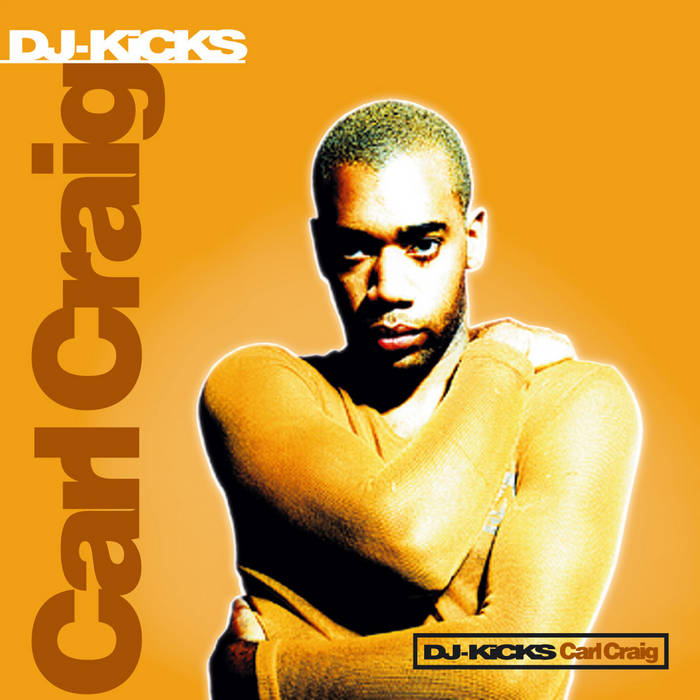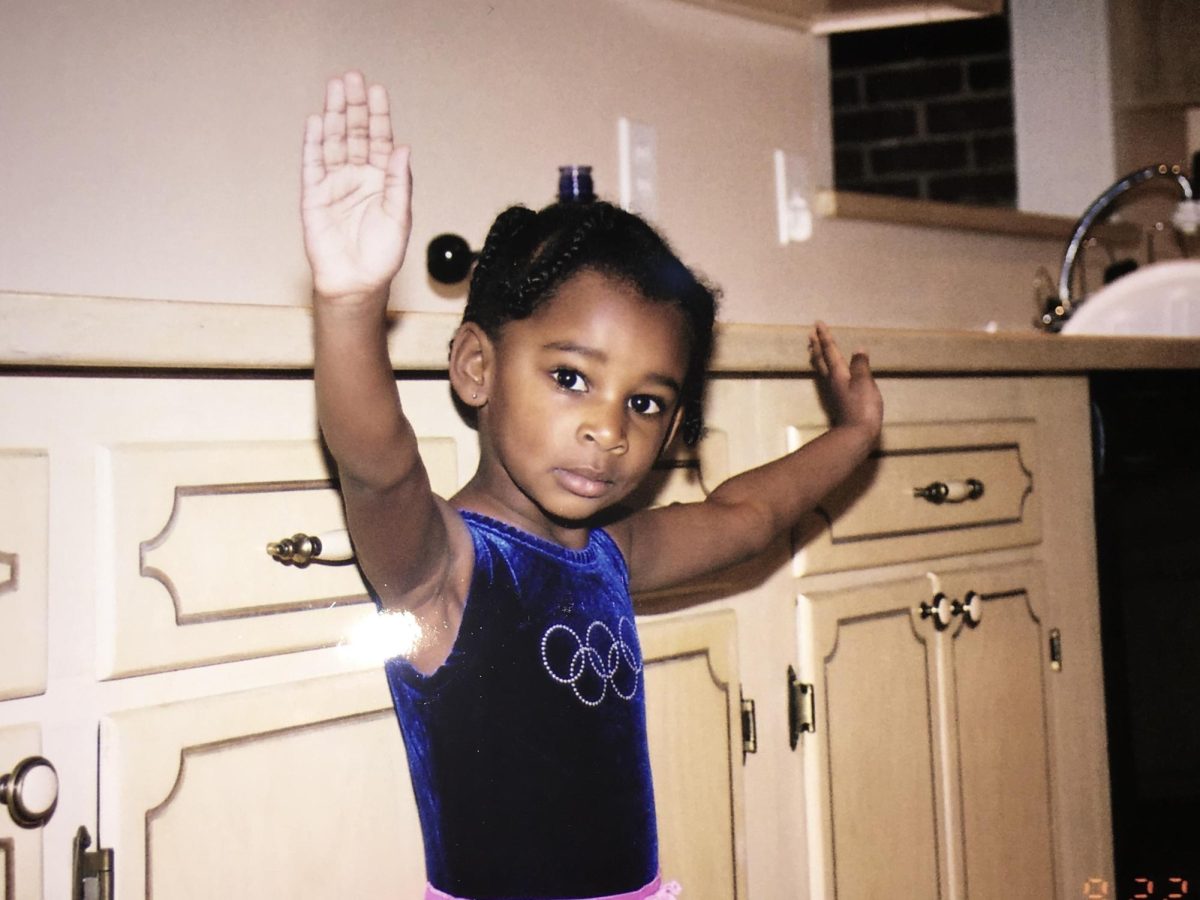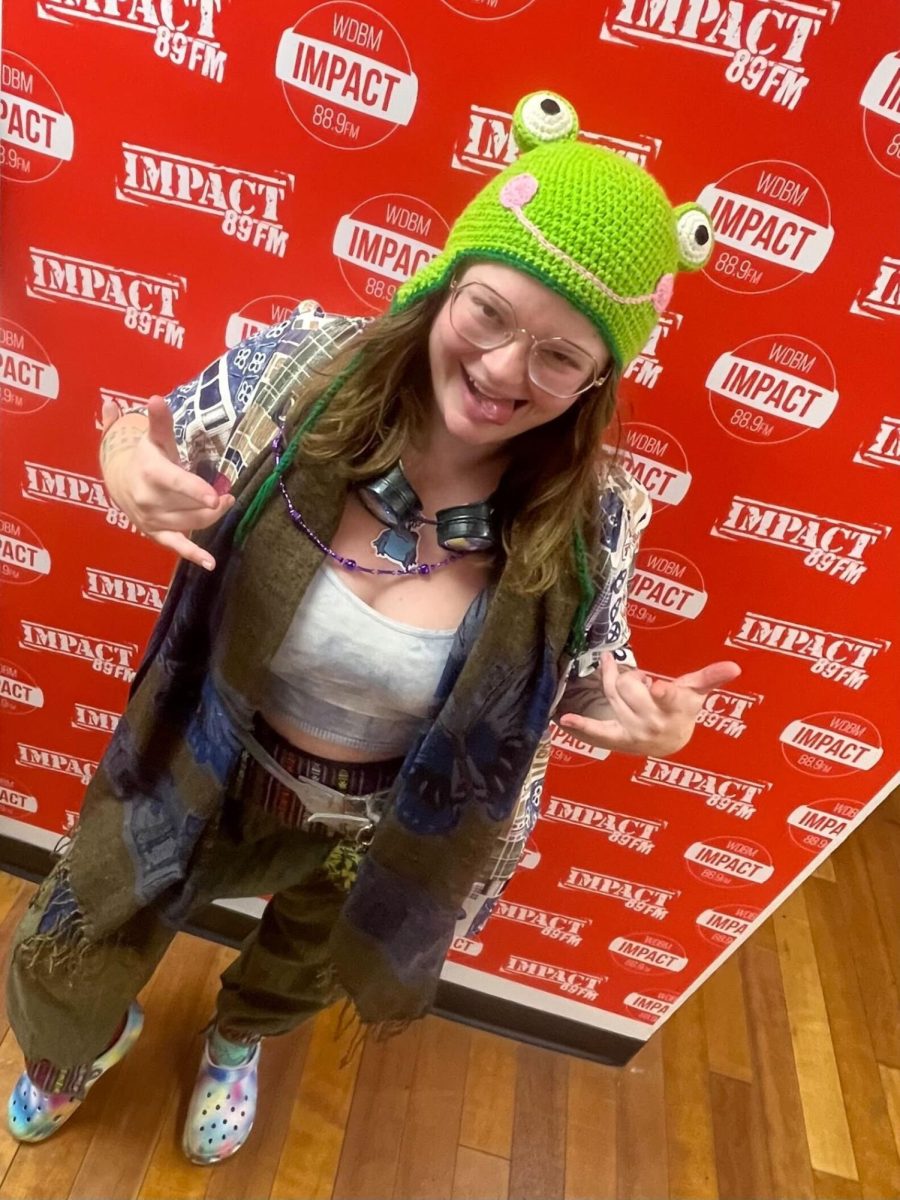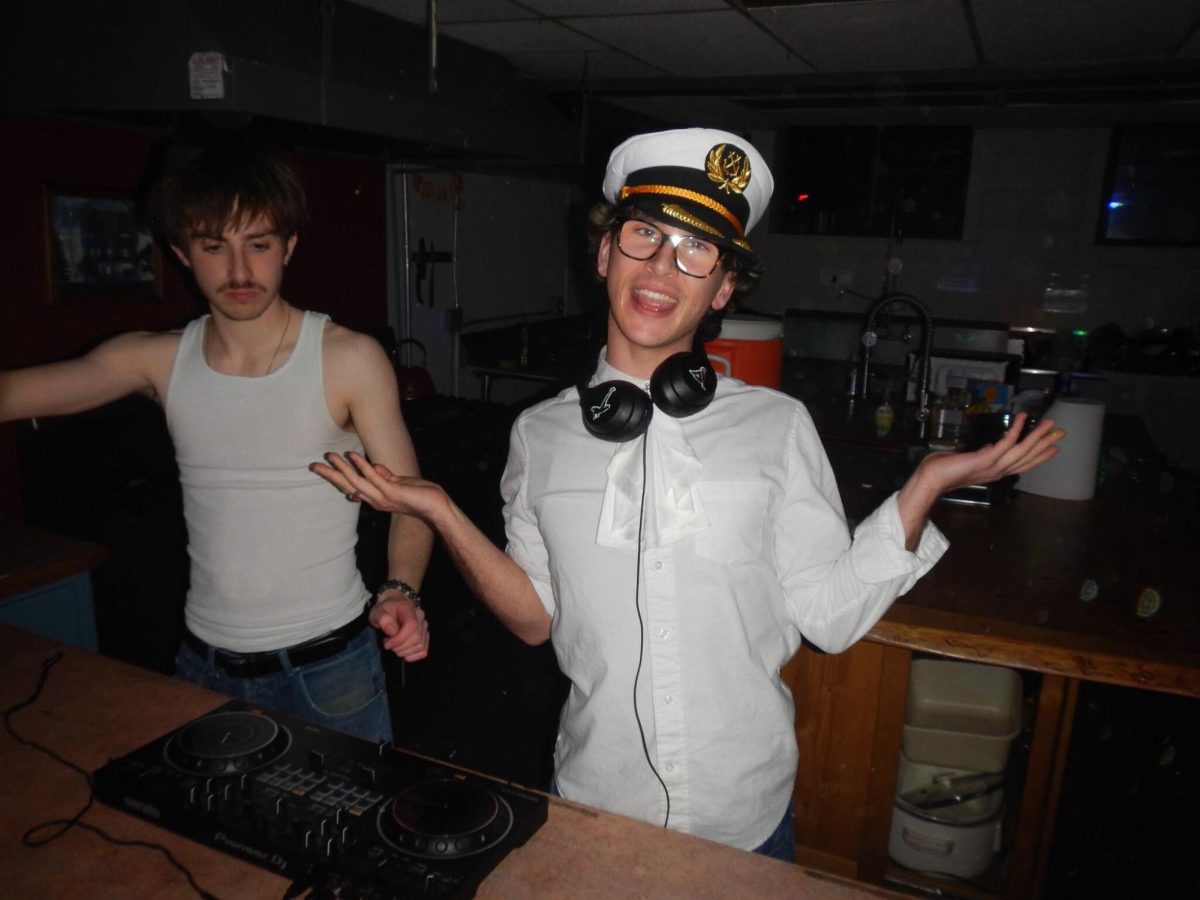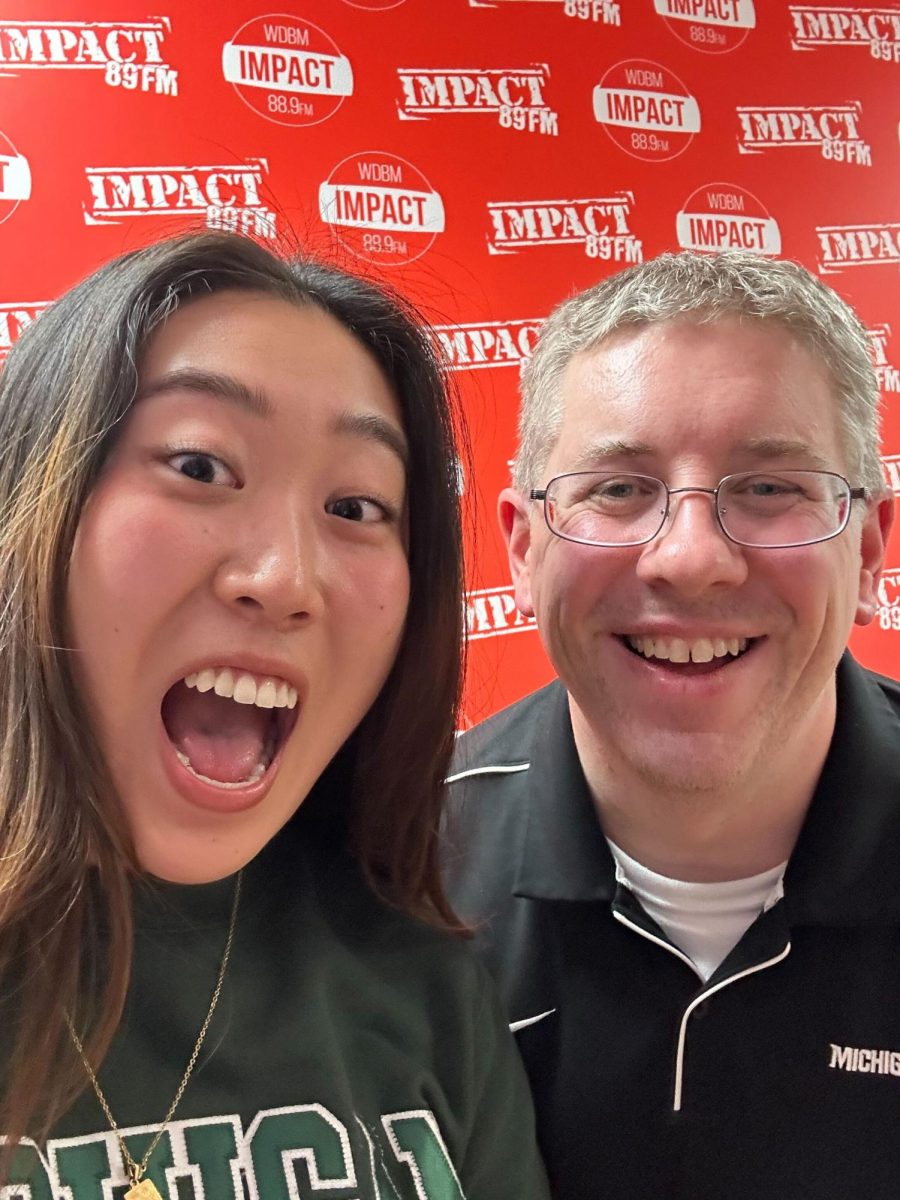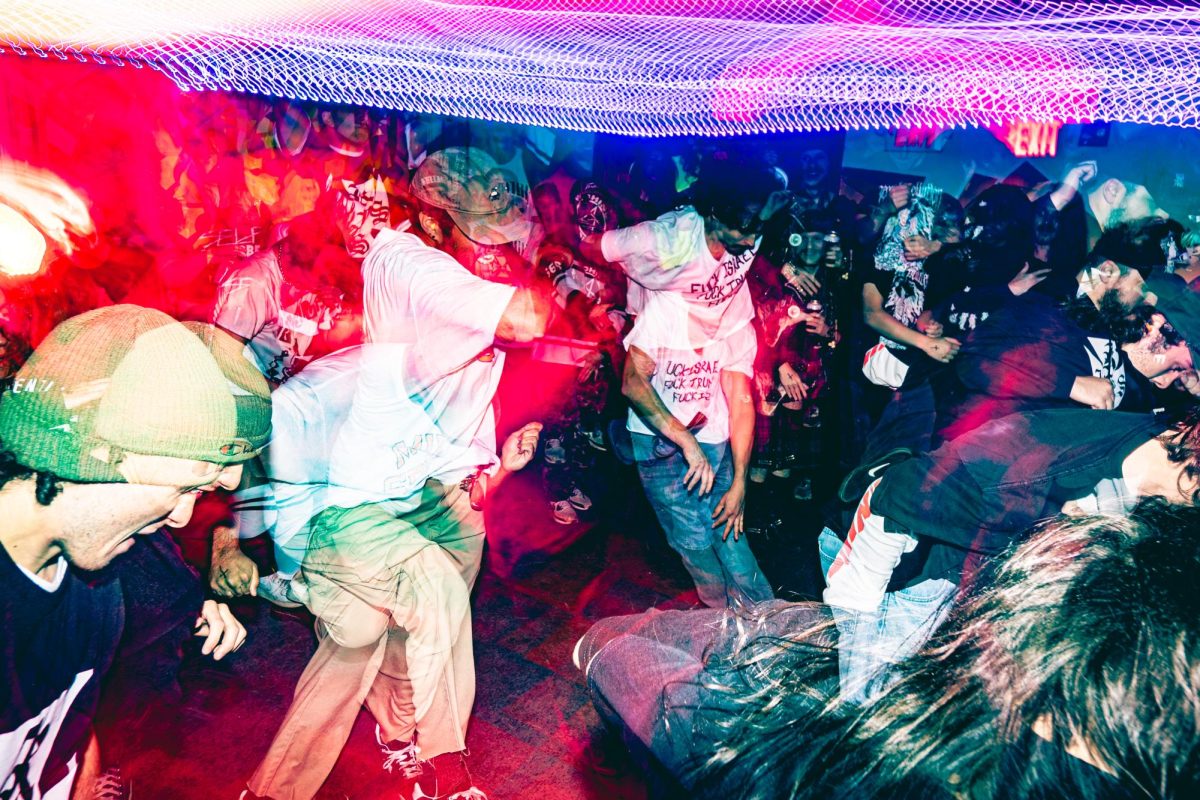“When it’s hot in Detroit, you know, it’s like super-hot.”
Carl Craig is nothing short of a Detroit legend. He is a techno pioneer, global DJ, electronic music producer, co-creator of the Movement festival and record label founder. Individually, he has released and remixed music under a multitude of aliases – his remix of “Like a Child” by Junior Boys even landed him a Grammy nomination in 2008 for “Best Remixed Recording.” Today, he is an educator doing his part to preserve Detroit’s music history for younger generations.
In our interview with Craig, we discussed his musical beginnings, Detroit’s techno roots and the implications of the genre for the greater Detroit community and world. Provided is both the audio of the interview and an intelligent verbatim transcription.
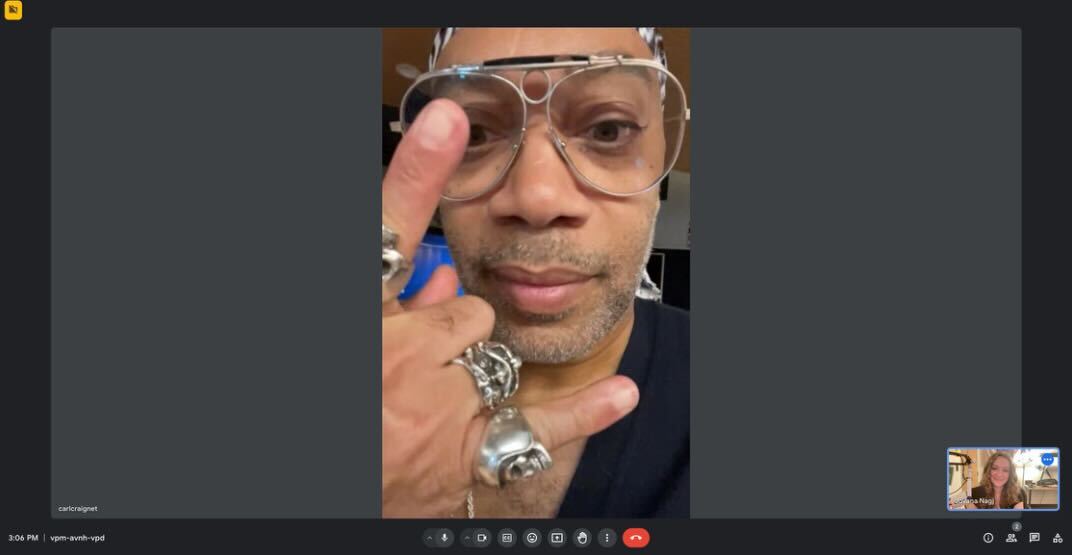
Listen to some Detroit techno in the playlist below:
Jovana: Before we get into it, do you want to introduce yourself briefly?
Carl: I’m just Carl Craig, product of the Detroit Public School system, proud dad, global DJ, electronic music producer. That’s probably good enough.
Jovana: In what ways have your life experiences influenced the music that you make and the music that you have made in the past?
Carl: I think one of the benefits that I have — me being me is that I still have memories of those days when I was a kid, those days when I wanted to do what I’m doing, those days that I couldn’t figure out if I wanted to be a radio DJ or a race car driver, you know, these are all of the aspirations that I think are necessary in order to keep yourself from becoming too grounded, especially too jaded because you know, money is a major thing for everybody and to get rich die trying or get rich by crying I don’t know. You know that seems to be the goal, but it’s kind of hammered into us, you know, by family, by naysayers, by anybody who wants you just to get a regular job working on a coffee shop or something. They think that’s better than being a DJ, or that’s better than being a guitar player, better than being something else. Even now, we’re at a point where there’s so much success that can come from riding skateboards. You know, from doing things that was always considered childish. So I like to hold on to my childish memories. I like to hold on to those times when I struggled, those times when I got dogged and those times when, you know, when I had great success before I found success. — Those failures are something that — should be humbling but you know you look at when they were coming up with COVID vaccine, there’s a lot of failure that comes within trying to have a breakthrough. So whether you believe that it works or not, that’s on you. But you know, in science, there’s always the failures that you have to mark down OK, that didn’t work. Let’s not try that and let’s try something a little bit different. Instead of going to ABC, let’s skip C and go ABD and see if that works and you know these are the things that I feel have helped me to be continuous and what I do to go two extra steps in order to try new things that I don’t try to lock myself into just being a synthesizer programmer. I don’t try to lock myself into just being a dad. I don’t try to lock myself into just being you know, a global DJ. You know, it’s like all of these things make up me, and the things that make up me also is to find out what the boundary is and then try to find a way to get past that boundary and then go to the next step.
Jovana: Was there anything specific that you can link that led you to take that jump and to take the leap?
Carl: Right, there’s a ton of things that opened me up to doing what I do. I mean, of course, putting my hands on the synthesizer for the first time when I was about I don’t know 15 or something — that had a big impact — it wasn’t necessarily that I could play it well it’s just that I knew that was the sound of my future. You know, it was the sound of then, it was the sound of, you know, that time. But it was definitely that sound I’ve been hearing in a lot of records that I wanted to be a part of. You know, I always bring up the first time that I DJd which was at a family reunion and you know I was real shy and a cousin’s husband had went up to the DJs and said, “Hey, you know” ‘cause I used to carry records everywhere I went, and her husband said, “Hey you know this, this young buck over here, he’s got some records can he play something?” They’re like, “yeah, OK, put it on” and the first record that I put on, “Egypt, Egypt” by Egyptian lover, it blew the room apart. Everybody went nuts in the room but we were in Georgia, and what those DJs didn’t understand was that that was the hottest record in Detroit and everybody was from Detroit. So, I asked to play another song and they say “Yeah cool, go ahead” and I tried to mix and I went from hero to 0 in two songs. But I remember that. And I gotta keep that because that keeps me grounded that kept me grounded more than you know anybody from when I used to play basketball in grade school saying you know, “You suck”, or, you know anybody who was a friend of a competing musician that said “This guy’s a better musician than you are. He makes better stuff than you”. You know those things they’re there and I remember them but really those times when you have a success and then when you right after have a failure is really what life is all about. I mean that’s really freaking what life is about. You know so I guess it’s like if you like driving fast on the freeway, you drive real fast on the freeway, you go around the corner, and its like “I made that corner without killing myself” but then you run into the back of somebody else’s car so you know you got that exhilaration and then you have a crash. It’s important to keep those in the forefront of your mind as not only inspiration, but you know, swift kicking ass. Kind of — keep pushing like yeah, you’re going to do something great, you’re going to fuck up but it doesn’t matter whether you fuck up because you’re gonna do something great again and you’re going to recover.
Jovana: One of the first times you DJd was at a reunion in Georgia, correct?
Carl: Mhm
Jovana: I mean now you’re kind of traveling all over the globe, being an ambassador for Detroit at your shows around the world. In what ways do you see techno as a way to diversify the narrative of Detroit to non-Detroiters? You just told me, you know, you were bringing this Detroit record and something that was popular for the Detroiters into Georgia and the DJs there couldn’t really understand it at the time so how do you kind of see what you do now at all your global shows kind of diversifying the narrative of what Detroit is to people who have never gone or who didn’t grow up in Detroit?
Carl: Well, it’s not only to people it’s to generations because you know the first time that I left United States was in 1989 so you know we’re talking 34, 35 years or something. So, you know there are people who I’ve played for back at that time that don’t go to clubs anymore. There’s generations of people that don’t go to clubs anymore. It’s you know like when I played in UBOAT in Bordeaux on Saturday and Porto on Friday you know, the crowd is 18 to 30 years old you know and the 18 year olds definitely weren’t alive and the 30 year olds maybe were alive —
Jovana: — You just did a talk at MSU that was about like a month or two ago and I know that you also went to NYU and my generation right now is in university we are kind of in that threshold the what you were saying about the 18 year olds, the 19 year olds, even the 30 year olds weren’t very alive at these shows. So, what do you think is the importance of educating college students and educating this generation not only on just like techno and Detroit’s centrality in that narrative but also for topics like Afrofuturism and why is that important to you?
Carl: It’s easy for people to default into what they see in front of them, what they like, what they see in front of them. When I was a kid, and this was — the important thing about how the people with jazz dealt with — influencing the kids and stuff you know. Because, like I wouldn’t have known who Ahmad Jamal was if it wasn’t for my dad’s records you know. And your dad might not have even been into anything like that. Your dad might have been into Black Sabbath or something. You know so, whatever is — in front of people’s faces right there, they think that’s best but they have to have some sort of opening some sort of gateway in order to get them to see that there’s something else that’s good too and you know when I go and I talk, and some people know me some people don’t. The ones that don’t know me obviously are going to be more open-minded to you know try to find out what I have to say, try to find out what I’m about and then they’re potentially going to do research. That’s what you would hope they do so with, I can’t remember what the name of the movie is with Keith Richardson and Chuck Berry where you know, Keith Richards was trying to do a comeback show for Chuck Berry and he’s trying to tell Chuck Berry how to play “Johnny Be Good”. And Chuck Berry’s looking at him like look “fool, this is my song”. You know, he doesn’t say anything but the whole time you know, he’s telling them like “No that’s not the way you play it, this is the way you play it” and Chuck Berry’s looking at him like “man this is” and no matter what the situation is, that there is a new group of people that found out who Chuck Berry was. That they wouldn’t probably wouldn’t have known anything about Chuck Berry unless they saw this movie with Keith Richards. So you know, it always has to be there, there always has to be a source of influencing people who don’t have the the family members or don’t have the infrastructure of people around them to be able to influence them and in many cases, like with techno with Detroit techno, how often do you see that on documentaries or TV shows or you know NPR radio shows or anything like that. So, you know, if they’re not going to do it then I guess I gotta do it.
Jovana: You were just saying, you don’t see that many movies about, that techno isn’t a very exposed genre and field of study. Do you think anytime in the near future that you see kind of this explosion of learning about techno happening? I know you’re doing it yourself, but do you see this turning into a bigger movement in the future?
Carl: Yeah well techno, techno’s great. Detroit techno is great. The situation with techno is that it’s not as defined as rap for instance. You know, rap and hip hop, no doubt, the Bronx. You know, Cool Herk, no doubt about it, right? Techno, you know, the Germans say they made it, we say we made it, you know, the Italians say they, they did something. You know, then there’s the first use of use of the word techno, who used it first in a song? Who did this, who did that? So, we’re busy — scrapping trying to make sure — there’s that understanding that this is you know Detroit techno is really where you know really where anybody who has any idea what techno is that we know these days comes from Detroit techno. Yes, we were influenced by Kraftwerk yes, we were influenced by Liaisons Dangereuses, we were influenced by English Electro Pop, we were influenced by, you know, all these things but when you have a museum in Frankfurt, that’s saying — German techno blah blah blah and then you have UNESCO saying Berlin techno blah blah blah and the problem that we have with Detroit techno is that we don’t have a cheerleader in government. You know we don’t in the U.S. government, we don’t have even though there’s a little display of Juan, Derrick, and Kevin at Smithsonian and D.C., you know there’s no — force that is said Detroit techno boom, you know. Like rap and hip hop, hip hop 50 boom. And on the American side of things, I think it comes from that, you know, again, there’s that confusion, but also, you know, we’re not making multi billions of dollars within the genre per year like rap, you know it’s not a commercial form of music, you know any Detroit techno that’s charted, charted a long time ago. So, I’m fighting the good fight, but it could be, you know, after I’m long gone, you know, after Derek and Kevin and Juan and Kenny and Stacy and, you know all of us are long gone, that there’ll be more clarification. It might be my grandkids, might be my great grandkids, who knows that they’re the forefront of clarifying what this what, what Detroit techno truly means in the grand scheme of things.
Jovana: And then I know you’re just talking about how Detroit techno is something that even just techno as like a genre, you can’t really box it in, it’s not very well defined, especially where in this whole fight about where it actually came from. But what are some things that you think sets Detroit techno apart from other versions of techno, for example, like the German techno or the Italian techno or anything like that.
Carl: Nobody’s experimented in the way that we have, you know, I mean with my experimentations — I’ve had influence that’s been into filter house. With “Throw” and 69, I’ve had influence in the drum and bass, with “Bug in the Bass Bin”, I’ve had influence in I can’t even think of what else it is right now. You know, I’ve done jazz I’ve done all these things so, you know, with those experimentations and with me, you know, accepting failures and pushing it to the next level that, you know, Detroit techno isn’t just locked into this thing that people can try to define it and say “OK. It’s that” because if you listen to Roni Size and Goldie and all that, you know, there’s some fingerprints of mine that’s like I got my dirty, greasy little fingers in there, along with Kevin Saunderson, because what we know is the Reese baseline that’s comes from Kevin Saunderson “Just Another Chance”. So, you know, we’ve been able to maybe make things a bit more confusing, but also our sound has been a part of an evolution of electronic music that’s gone outside of Detroit techno and gone outside of any. So, I don’t, I can’t say that there’s been a lot of other techno where they’ve experimented so much that it’s that its crossed genres.
Jovana: Staying on that topic of originality and experimentation, you actually founded your own record label Planet E. And I know one of the things that you strive for is to maintain creative independence from this mainstream industry. What are some ways that you kind of preserve and encourage originality within your label?
Carl: I started Planet E, as you said, for my own independence, but you know part of me being able to do that has been by me taking jobs outside of my label, so doing remixing which that’s what I got nominated for a Grammy for. And I looked at it like guerilla warfare, so I took money that I earned from remixing other people’s music and just put it into my own career. So, you know, by me taking those chances, I think that’s made it where anybody that decides they want to send music to Planet E they know it’s gotta be risky, you know, it can’t just be afforded a floor, same old, same old kind of thing. You know, it’s got to be something that’s going to push the boundaries.
Jovana: Having a lyric less genre, how do you maintain originality and continue to experiment with a genre that doesn’t really have words?
Carl: Yeah, I’m not a lyric writer. That’s one of the reasons why I stayed out of making lyrics. Most songs that are electronic based have very simplistic words like ass and titties or something. So I think that with making music with less lyrics makes it possible for the music to crossover race, genres. To crossover taste, crossover gender, cross over anything and music without lyrics is, you know, you’re dancing to the music, you’re not dancing to the lyrics. So, in some cases, I think lyric less music actually lasts longer and has a longer lifespan than musical lyrics too.
Jovana: What are some other ways in which you see techno bringing together communities because of the way the genre is able to transcend human identities?
Carl: You know, with Detroit because Detroiters we pick and choose so we don’t across the board just say like, “oh yeah, you know I like this kind of music” it’s like you like the piece that’s the hottest piece, and then the rest of it, you know you can kind of throw away. So, with Detroit we have this very specific way of liking the music and you know, when it’s hot in Detroit, — you know it’s like super-hot. You know, that’s what I love about Detroit because Detroit it doesn’t screw around. Detroit is real real about everything about the music about the identity of the music. You know we don’t have a situation where maybe like if you’re in Manhattan the record might be hot but in Brooklyn it’s not, you know or in Long Island or, you know, somewhere else in the area and it becomes not only regionalized, it becomes like almost neighborhood. We don’t — have that in Detroit. And that’s what I really love about it. I really love the fact that you know, Detroiters know what they like and they like what you did, then it’s going to be it’s going to be a big deal. —
Jovana: Finally, I just wanna give you a chance to be able to tell our audiences what they can expect from you. You got anything coming up I know you’re one of the headliners at Movement this year, correct?
Carl: Yeah I’m playing, unless they tell me I’m not! So, well, I got a lot that’s going on. Playing all around the world like usual. There’s a lot of great things that are happening some that I’ll just let you guys discover for yourselves
Jovana: Thank you!
Carl: But it’ll be a lot of fun.



